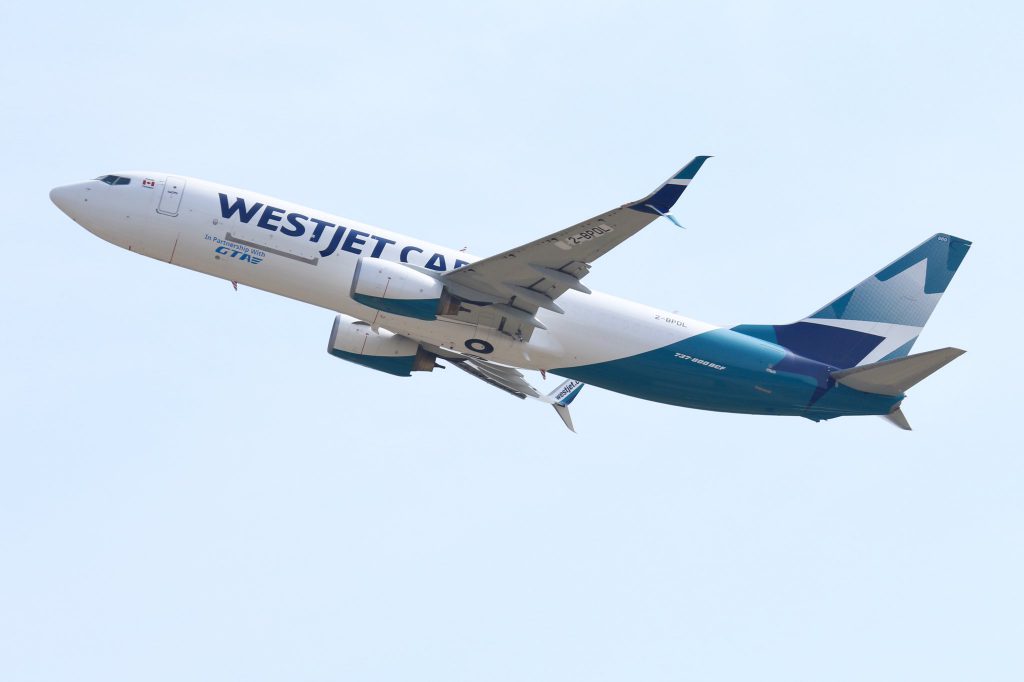WestJet’s cargo operations have been pushed back by nine months due to delay in certification, but they’ve compensated with a major discount.
This item ships out on or around December, 2020.
WestJet’s big move in the world of cargo transport is opening up their new 737-800s for other companies. WestJet has converted four of their 737-800s to freighters with Boeing, and they’re waiting for government approval to use them.
WestJet leadership expressed an expectation that two of the planes would begin service in July 2021. It then turned out that the initial date was incorrect, and the new dependable date is March 26, 2023.
“Unfortunately, the certification didn’t go as planned. We originally planned on teaching you skills that would help you build a successful client portfolio and get new clients in motion. Unfortunately, this required more time than we had originally anticipated and we’re sorry to have to delay the start of your program.”
The approval process will take months as Transport Canada has to approve the structural modifications and then WestJet has to apply for an aircraft operator’s certificate. Part of the conversion process, Boeing installed a wide cargo door in the fuselage and added reinforced flooring for supporting cargo containers.
WestJet is a startup airline within an existing airline and will be the first in Canada to operate a 737-800P2F factory conversion aircraft. By the end of this year, two of the four aircraft were already in WestJet’s possession and are now sitting in Calgary. With all four of those jets finalized, WestJet Cargo has lost just nine months from this year’s projected start date of July to March 2023.
Aeronautical Engineering Inc. has been approved to convert the 737 through a supplemental type certificate. Boeing cannot get the type of certificate it needs to modify because it does not own the aircraft’s type certificate. It would need to issue a service bulletin in order to get approval, amongst other things.
Certification troubles
MAX problems and fuselage issues are the end result of a complicated history with the FAA and Boeing. The following aviation regulators will now be looking to secure complete compliance without cutting any corners once it becomes operational.
The FAA and Transport Canada recently changed their requirements for aircraft certification. This includes requiring that planes be in a service-ready state. The problem is, Boeing’s 737-800s may not pass this new requirement because Transport Canada has a new requirement for planes to undergo “cold soak” testing to prove their ability to perform in freezing weather. The “cold soak” test includes taking the aircraft to an airport in northern Canada, where temperatures may reach -40ºF or even lower and testing vital airplane systems like flaps, doors, and gearboxes to ensure everything operates properly.
When it launches, WestJet Cargo will offer domestic and trans-border services between Toronto and Miami, 4 Canadian cities, Vancouver, Calgary, Toronto and Halifax. The original business model focused on domestic and express delivery before offering scheduled flights between major cities in the United States. WestJet Cargo expects to begin signing contracts for its services in late February.”

